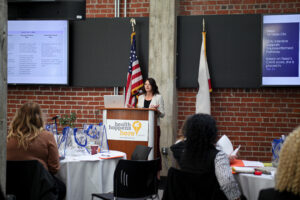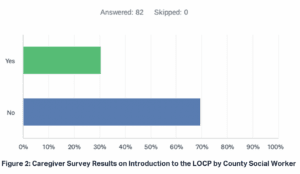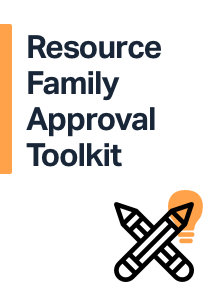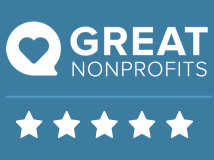A primary goal of our child welfare system is to keep children with family where they are more likely to be comfortable and thrive. Another goal is to meet children’s individualized needs with appropriate services and supports. Yet when children are placed with family, their services and supports are not based on need. The numbers clearly demonstrate the gap:
A non-related foster parent caring for three children is entitled to $2,700/mo. But, a relative foster parent charged with providing the exact same care to the same three children is likely to receive only $714/mo.
Family members are often caring for the most at-risk children: children with learning disabilities, health problems or youth in the delinquency system. The family of these vulnerable youth are often already living in poverty and over the age of 65, yet they receive the least amount of support.
On June 27, the Alliance and our partners presented these facts and the findings of a new report at a meeting of the California Department of Social Services. The meeting was part of the Continuum of Care Reform effort that is underway with the goal of developing a set of recommended changes to the state’s rate-setting system, services and programs in order to ensure that all children live with a committed, permanent and nurturing family.
Additionally, the presentation included a summary of the findings from a new study issued last week titled The High Cost of Caring: Grandparents Raising Grandchildren. The study shows that these families – older adults raising grandchildren alone – may be among the most vulnerable residents in California, due to the state’s high cost of living and low levels of public assistance. Read Child-Rearing Grandparents Slipping Through the Safety Net from the Los Angeles Times.
It’s time the state take steps towards making grandparents and other relatives part of the solution to fixing our child welfare system. Stay tuned as we continue to push for equitable support for relative caregivers.








